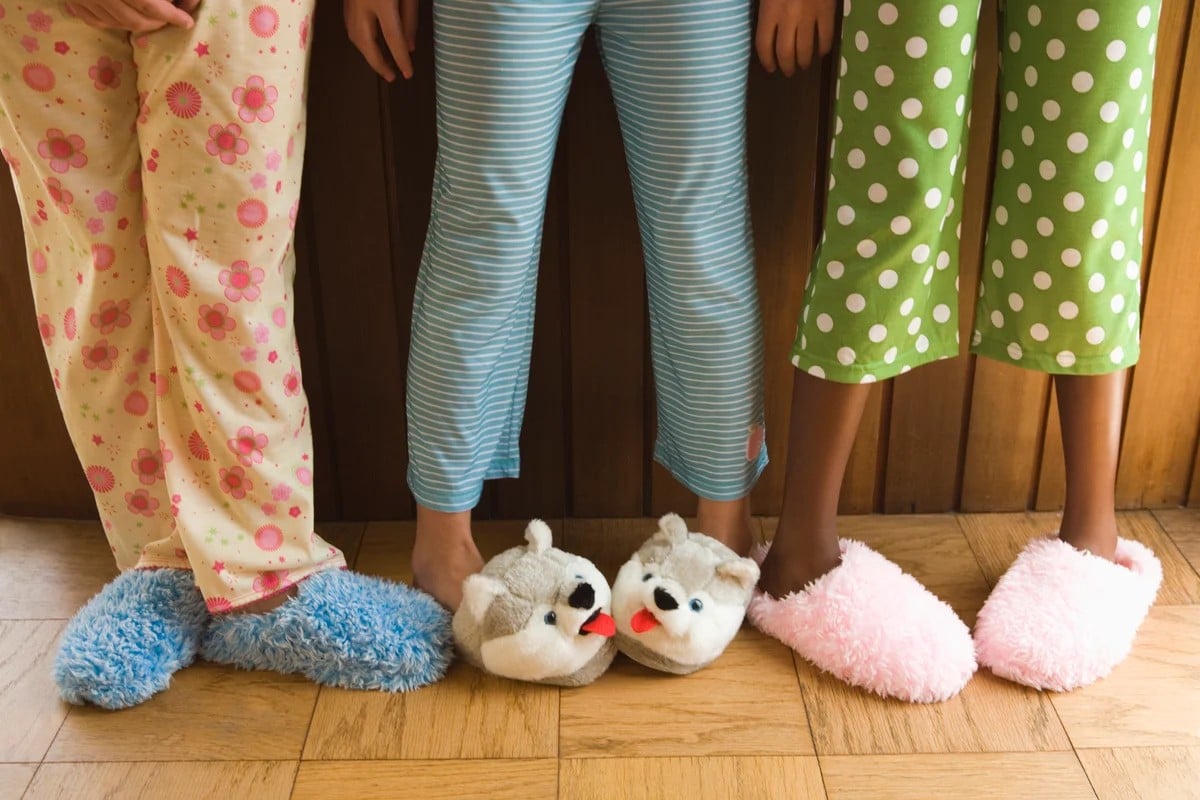
At a sleepover when I was 14, I broke my toe while we practised a dance routine and I was too embarrassed to tell my friend's parents. I just put up with it throbbing all night.
At another slumber party, we decided to pull an "all-nighter," which sounds fun but is the complete opposite of fun the next day.
Another time, I can only describe their air conditioning setting as Antarctic, so I slept in a coiled position, too awkward to ask for another blanket.
Ahhhhhhh those were the days.
Despite the lumpy mattresses and the fact that very little sleep actually ever happened, sleepovers are a great source of nostalgia for most of us.
The movie nights. The snacks. Picking which Spice Girl you were before mimicking the video clips.
They were a core memory.
And it's very likely our kids will never experience them.
Watch: The various responses to the question: 'Should you let your kids have sleepovers?' Post continues below.




























































































